The Role of Universities in Shaping Democratic Values
Montclair State University President Jonathan Koppell shares how to cultivate democracy and discourse in higher education
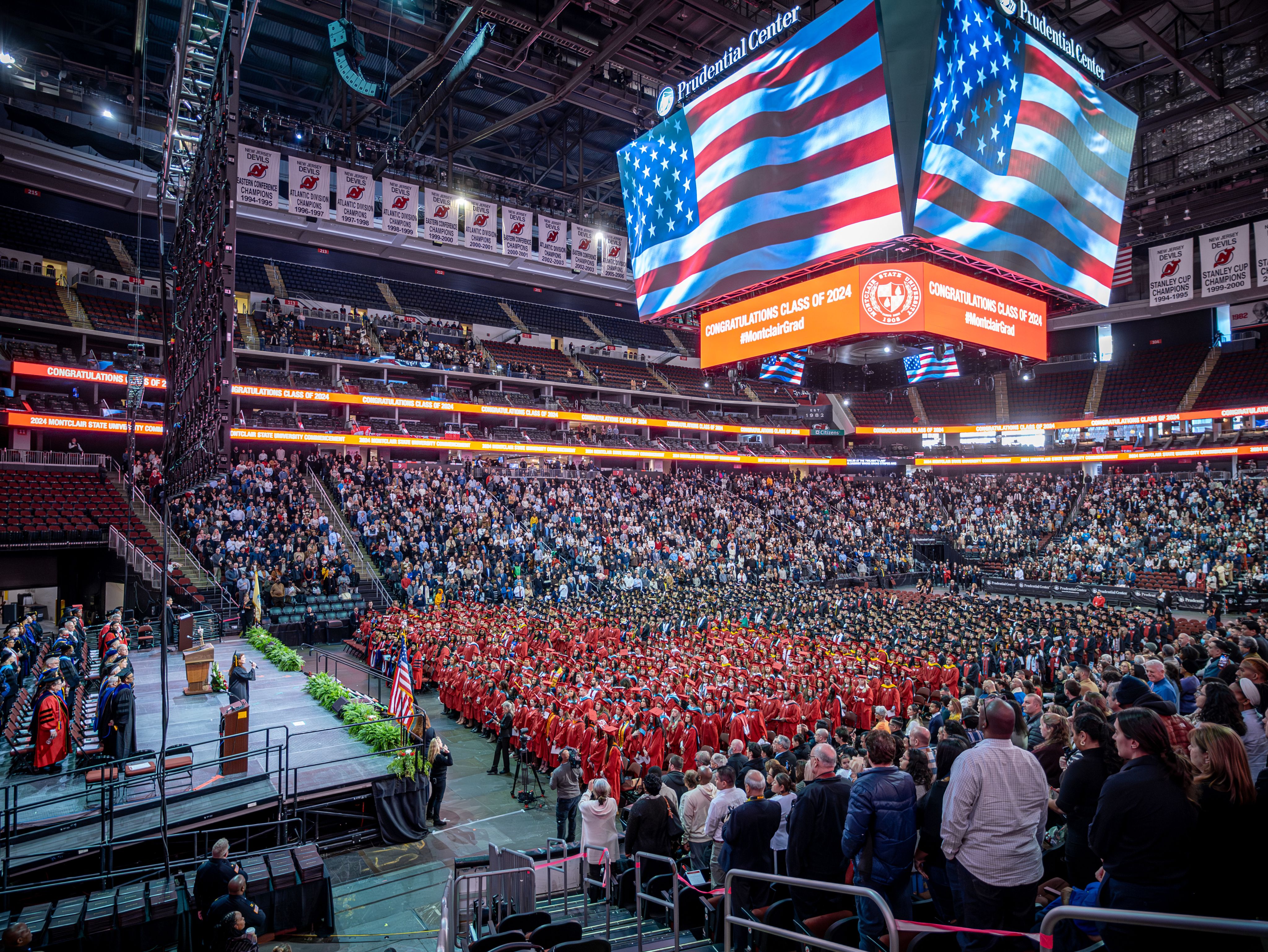
After the tumultuous academic year just completed, there’s not a university leadership in the country that isn’t using the relative quiet of summer to evaluate all policies and procedures related to expression and protest. This makes good sense. Many institutions did seem flat-footed in the face of unprecedented activity and scrutiny. And now comes a fall semester with a high-stakes divisive election added to the already combustible mix.
We are doing the same thing here at Montclair State University, New Jersey’s second-largest higher education institution. But like many colleges, we are also trying to do more than gird ourselves for the coming storm. There is an opportunity – and a real need – to encourage constructive engagement and not just minimize risk. Universities have a key role to play at what feels like an inflection point for American democracy. Let’s try to channel the passion of our students into democracy-building action. This is not easy, of course. We are deeply divided as a country, and that extends to many campus communities.
Even more profoundly, we confront evolving cultural norms that favor disagreement over discourse and are, in some cases, simply anti-democratic in the treatment of dissent or fact. The divisiveness is perpetuated and amplified by social media, political operatives, and advocacy groups. That’s exactly why it’s on us, as higher education leaders, to intentionally build the muscle memory of an engaged campus culture built around a shared aspiration to advance the common good. We have the ability and resources – unique from almost any other institution in society – to cultivate an environment where people from different backgrounds can respectfully co-exist, interact, and collaborate. So, if we’re not the ones attempting to foster a spirit of positive civic engagement – who will?
At Montclair, we’re practicing what we preach. As an indicator of our efforts, last month we received the Carnegie Foundation’s Elective Classification for Leadership for Public Purpose. The classification recognizes 25 institutions that promote effective leadership transcending functional or instrumental objectives in pursuit of collective public goods like equity, harmony, sustainability, and liberty. Others featured on the list include Arizona State University; California State University, Fresno; James Madison University; and the United States Naval Academy.
I’m proud of the efforts that earned this recognition but even more energized by what’s possible if all of higher education embraces the goal of creating citizen leaders. This takes sustained and nuanced hard work, but imagine the impact we can have if we collectively harness the power of thousands of students, faculty, and staff to strengthen our civic fabric.
Based on what we’ve learned at Montclair and numerous other institutions that are leading the way, here are some tangible ways to do this:
1. Embrace public service as a gateway to civic engagement.
At Montclair, we have multiple service-oriented leadership programs, such as NextGen Service Corps, Bonner Leaders, and AmeriCorps, that introduce students to key concepts and practices while building skills in teamwork and community partnership. Most importantly, students get a sense of their own potential for efficacy through engagement. We seek to go beyond these programs to teach this key lesson. All of our departments and colleges are building courses that create hands-on learning opportunities while addressing a wide range of issues, from unequal educational and health outcomes to environmental and social justice, poverty, human trafficking, and climate change.
This type of activity opens the door to broader engagement by introducing students to the complexity of challenges. It creates opportunities for dialogue with people who have different views and demonstrates that most solutions require understanding and collaboration, which cannot be achieved through toxic Instagram posts.

2. Intentionally build discourse and constructive engagement skills.
It’s critical to ensure that our faculty, staff, and students feel comfortable facilitating difficult conversations and to equip them with the tools they need. That’s why I joined College Presidents for Civic Preparedness, an initiative of The Institute for Citizens & Scholars that brings together university leaders from across the country and political spectrum to design and share resources that help students prosper in a pluralistic society. This summer, the organization will hold their Faculty Institute on our campus, which trains faculty to be skilled, confident, and comfortable in creating, leading, and sustaining spaces for diverse intellectual and social perspectives.
We teach students to do the same. Our Office for Social Justice and Diversity trains students to facilitate workshops that cover a range of topics, such as safe spaces, microaggressions, and diversity and inclusion. Students learn how to navigate tough situations by speaking freely and respectfully as they build alliances around an understanding of differences. These sessions have demonstrated that peers listen to peers, resulting in improved communication, problem-solving solving, and conflict-management skills. This is what our democracy desperately needs!
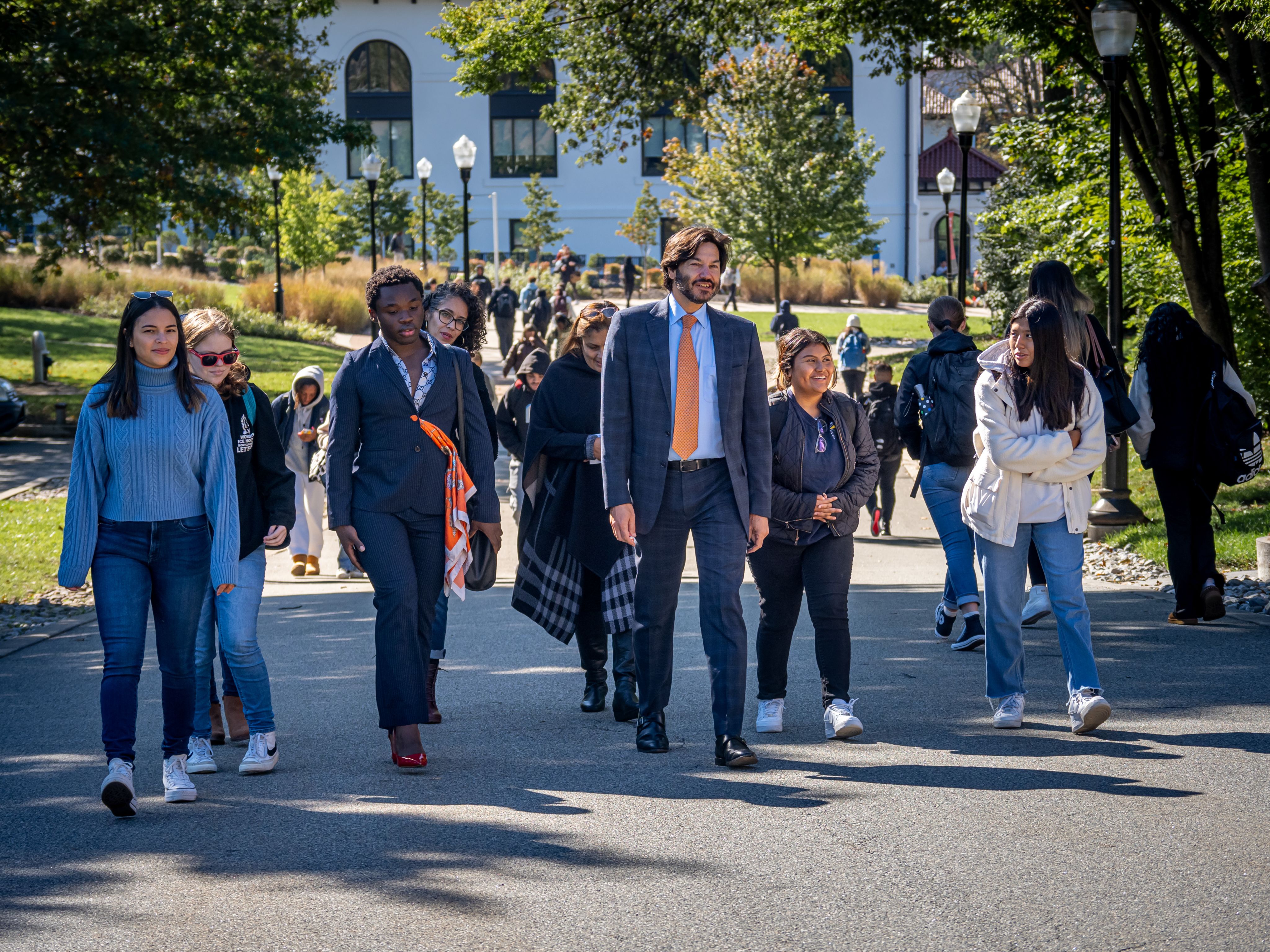
3. Don’t shy away from promoting political activity.
There is nothing more fundamental in a democracy than voting. And it should not be controversial to promote this activity as long as we are assiduously non-partisan. We should urge members of our community to participate in an informed and habitual fashion and underscore not just the symbolic value of this activity but its substantive significance. This often means getting beyond presidential politics – which many students scoff at particularly in states that seem definitively “red” or “blue” – by shining light on legislative and municipal races. A local focus often has the added benefit of making the effort non-partisan which is an absolute must.
That is a key component of the partnership between Montclair’s Civic and Voter Engagement Office and the Andrew Goodman Foundation. This year, we’ll ramp up our collective efforts by launching an educational bipartisan social media campaign, hosting voter registration events, providing shuttle service from campus for students to vote, and offering polling location information for students who live off campus.
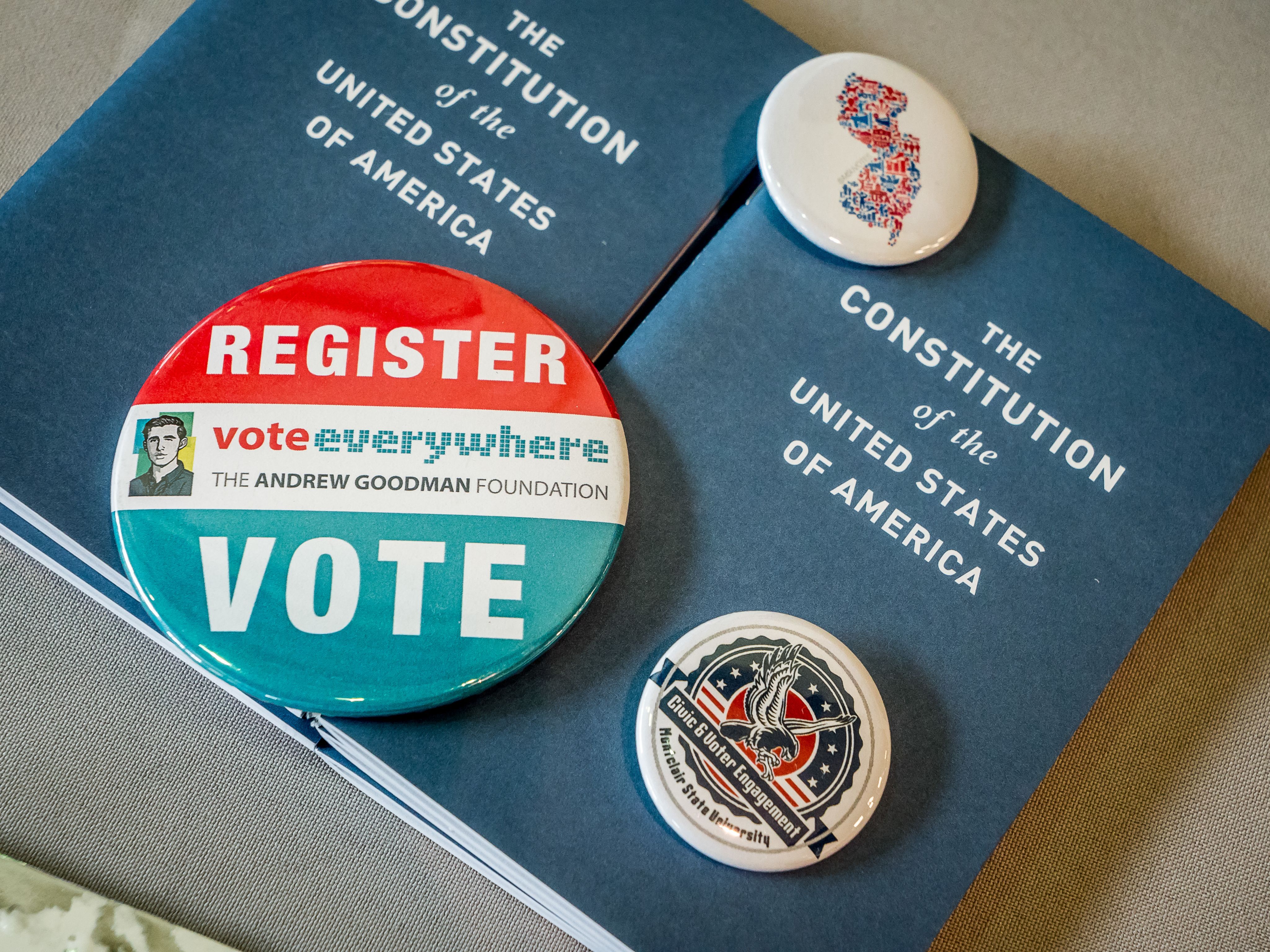
4. Demonstrate collaboration through community partnership.
Every time we work with off-campus partners, we have the opportunity to teach our students how action rooted in trust and understanding is most effective. This is an apolitical but tangible illustration of what is missing in the civic realm.
The best way for us to serve is to come up with projects based NOT on our own ideas and priorities; the direction needs to come from the community. We need to act as true partners by laying down deep roots, being active participants, and demonstrating commitment to lasting, sustainable change. Most importantly, we need to listen to the frustrations and aspirations of our neighbors.
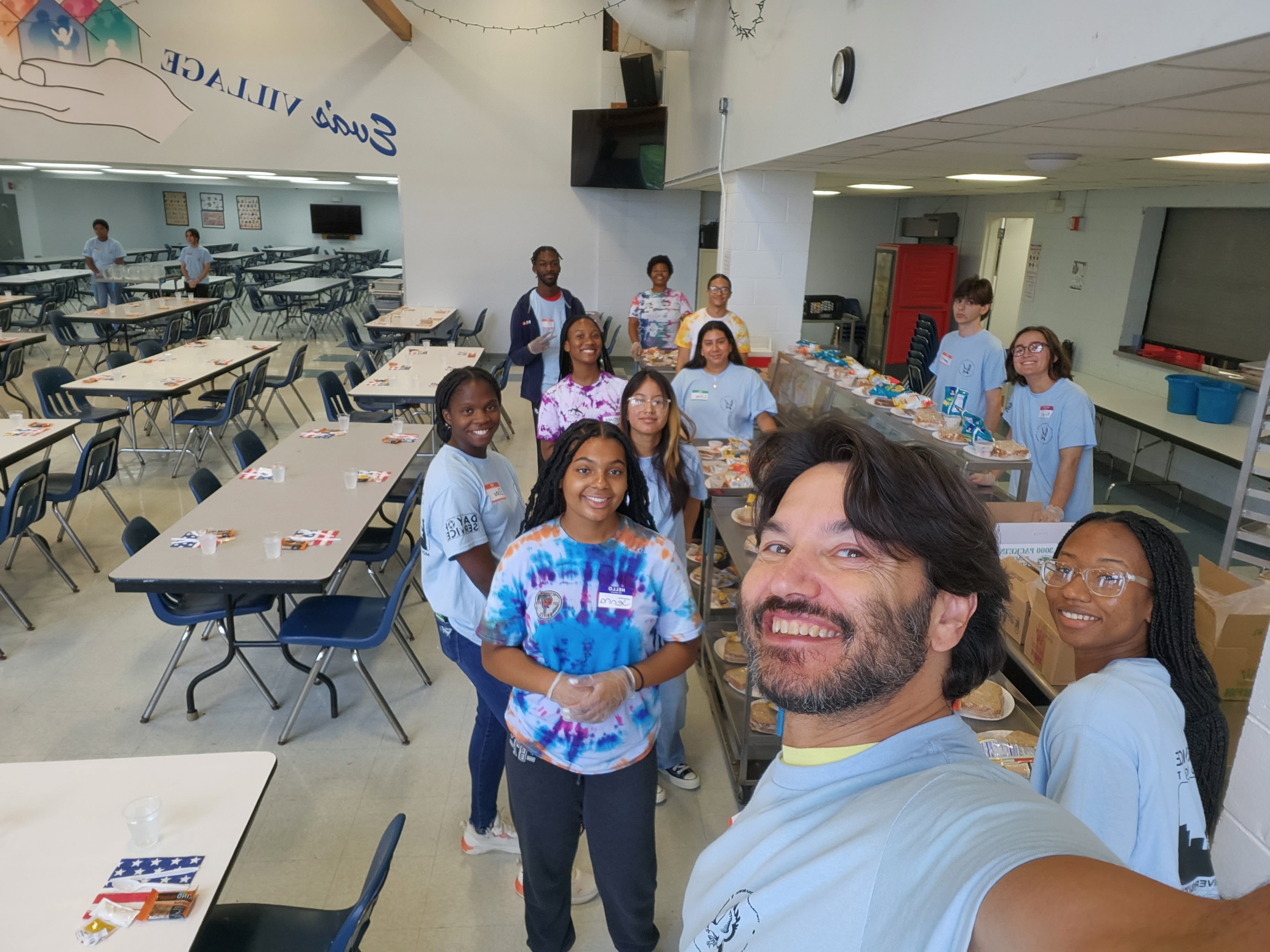
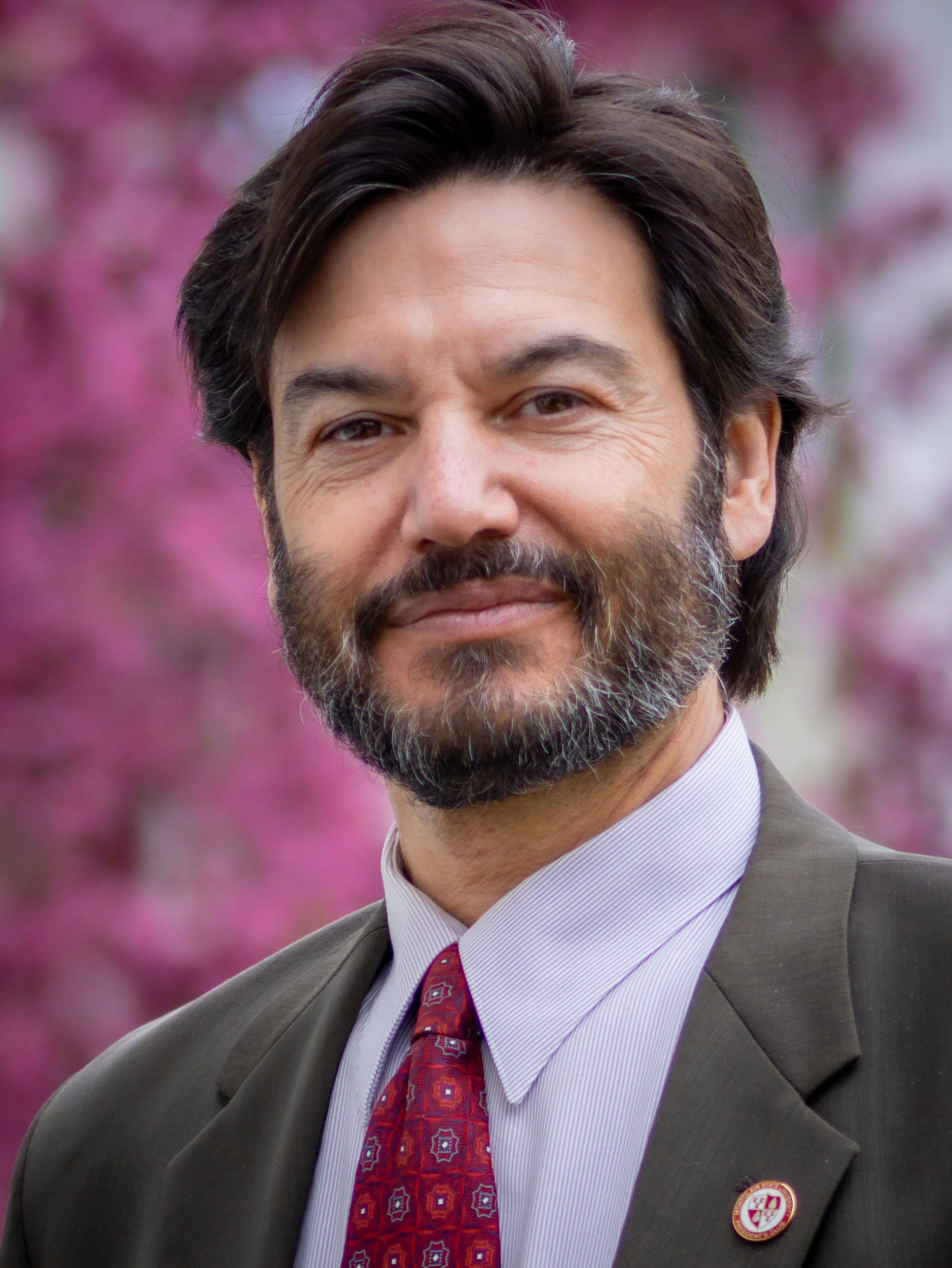
Jonathan Koppell, President of Montclair State University
Jonathan Koppell, President of Montclair State University

Jonathan Koppell, President of Montclair State University
5. Join forces to amplify effort.
We can’t work alone and we shouldn’t reinvent the wheel. That’s why, in addition to Citizens and Scholars, I’ve also joined ALL IN Campus Democracy Challenge’s 2024 Presidents' Council to draw inspiration from peers and organizations that have done great work in this space. Working together, higher education leaders can ensure that students all over America are well-equipped to be productively engaged citizens.
I believe that universities committed to advancing the needs of society are essential to conquering the problems that confront us and that the students we serve will be those responsible for bringing about positive change. That includes cultivating our democratic norms and institutions. That’s why from the moment they step on our campuses, students must see our strong commitment to civic engagement and have access to examples that demonstrate the power it can have over divisive activism.
There are those urging universities to retreat from the public arena. There can be no neutrality when it comes to democracy, however. Our institutions can only thrive in a free, open society so this is an existential matter. It’s up to each of us to draw lessons from colleagues doing great work to preserve these conditions. Let’s support each other as we take responsibility for the vitality of the American democratic republic.

This content was paid for and created by Montclair State University. The editorial staff at The Chronicle had no role in its preparation. Find out more about paid content.


